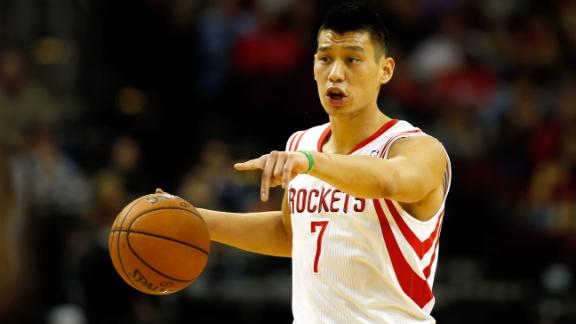Offer sheets seem specially designed to create bad blood. (Their equivalent in the NHL once led to one GM challenging another to a barn fight.) But that's the risk the Rockets ran when they declined a team option to keep Parsons for $965,000 this season. The idea was to keep him from heading to unrestricted free agency next year, since Houston planned on matching almost any offer for him. They didn't count on the Mavericks coming in with an offer intended to make matching so painful.
"We knew based off the numbers they were going to have to make some tough choices," Mavs owner Mark Cuban said. That entailed making the Rockets make those choices as quickly as possible: Cuban flew to Orlando and got Parsons to sign an offer sheet in a nightclub just after midnight on July 10, the absolute earliest he was eligible.
It was done to push the Rockets' hand—they had three days to match the offer, and at the time were still waiting on Chris Bosh's decision. If Bosh had signed with Houston, as most expected, the Rockets would have been allowed to exceed the salary cap to hang on to Parsons. But after Bosh announced he would re-sign with Miami, Houston and Daryl Morey decided they'd rather have the cap flexibility than retain Parsons for that price.
It was more than just the length and the money, three years and $46 million. The deal was specifically crafted, with a player option and a 15-percent trade kicker, to make the Rockets suffer if they matched it. "The Mavericks are a smart organization," Morey said yesterday."That structure of that [contract] is literally one of the most untradeable that I've ever seen."
(This should all be very familiar to Morey. His "poison pill" offer sheet to Jeremy Lin two summers ago was designed to make the contract that much harder for Lin's original team to swallow.)
So Parsons goes from one of the league's most underpaid players to being among its most overpaid. (At least as far as the Rockets are concerned. The Mavs, too, probably; they made they offer with the expectation that it'd be their divisional and geographic rivals cutting the checks, but Houston called that bluff.) He'll be making 50 percent more than new teammate Dirk Nowitzki, who happened to have a standing offer for a max deal from the Rockets. One of the better front-office rivalries in the NBA remains full of surprises.
 New topic
New topic Printable
Printable
 Report post to moderator
Report post to moderator